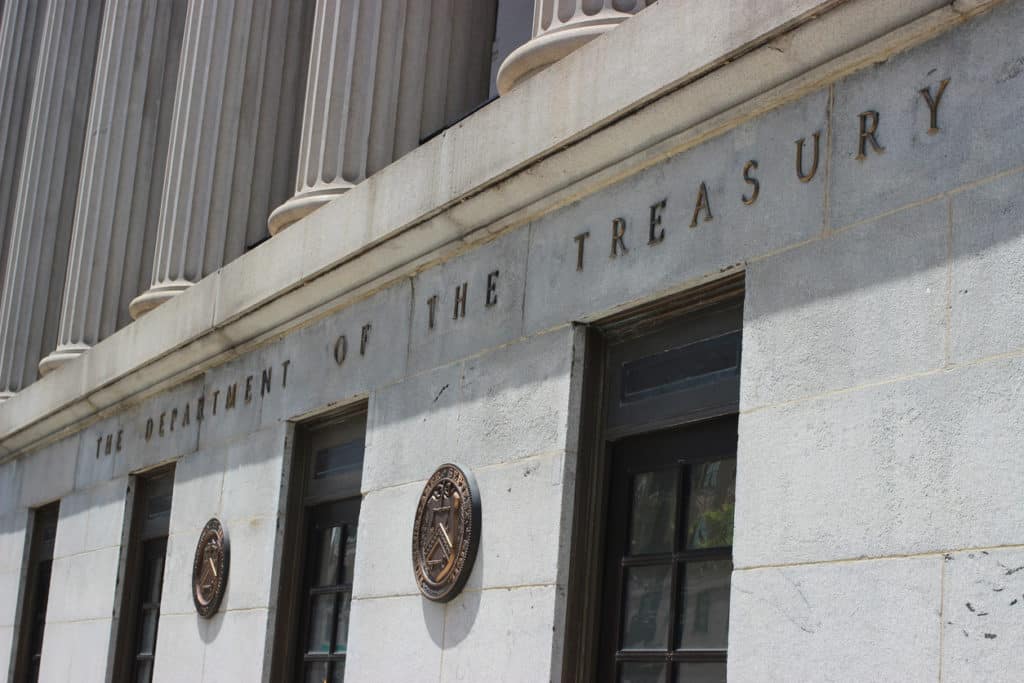
Today, the U.S. Department of the Treasury announced a coordinated climate policy strategy that will:
Bring to bear the full force of the Treasury Department on domestic and international policymaking, leveraging finance and financial risk mitigation to confront the threat of climate change. These actions will position the economy for strong and sustainable growth consistent with a net-zero emissions future.
To implement this strategy, Treasury will focus on the broad range of its climate-related policy work connected to 1) climate transition finance, 2) climate-related economic and tax policy, and 3) climate-related financial risks.
As part of this strategy, Treasury is also creating a new Climate Hub and appointing a Climate Counselor to coordinate and lead many of its efforts to address climate change.
Treasury’s unique responsibilities to lead on a range of programs related to climate change – including economic, financial sector, and government policies – will be reflected in the expanded climate strategy work program. The Climate Hub will coordinate and enhance existing climate-related activities by harnessing the tools, capabilities, and expertise from across the Department – including from Treasury’s Offices of Domestic Finance, Economic Policy, International Affairs, and Tax Policy. With a view of all Treasury climate initiatives, the Climate Hub will enable Treasury to move nimbly and efficiently in prioritizing climate action.
Treasury’s first Climate Counselor is John E. Morton, a recognized leader in the field of climate finance. Mr. Morton brings to Treasury more than 25 years of experience in emerging markets, investment finance, and economic and environmental policy. As Climate Counselor, he will lead the Climate Hub, report directly to and advise the Secretary on a broad range of climate matters, and focus in particular on Treasury’s efforts to facilitate and unlock the financing needed for investments to achieve a net-zero economy at home and abroad.
“Climate change presents new challenges and opportunities for the U.S. economy. The steep consequences of our actions demand that the Treasury Department make climate change a top priority,” said Secretary Janet L. Yellen. “Climate change requires economy-wide investments by industry and government as well as actions to measure and mitigate climate-related risks to households, businesses, and our financial sector. Finance and financial incentives will play a crucial role in addressing the climate crisis at home and abroad and in providing capital for opportunities to transform the economy. I look forward to working with John and our team to leverage their expertise and ensure that Treasury is doing everything it can to respond to climate change while creating opportunities that strengthen our economy.
Treasury’s climate policy strategy will support the Biden-Harris Administration’s critical climate-related goals by:
- Mobilizing financial resources for climate-friendly investments at home and abroad, and prioritizing the expedited transition of high-emitting sectors and industries;
- Leveraging economic and tax policies to support building climate-resilient infrastructure and ensuring the transition to a net-zero decarbonized economy;
- Ensuring that environmental justice considerations feature centrally in programs, policies, and activities, given the disproportionate impacts that climate change has on disadvantaged communities;
- Ensuring that policies designed and implemented to assist with the transition to a lower-carbon economy are broadly just and equitable and support well-paying jobs;
- Helping household, businesses, workers, and investors analyze, stay informed about, and adapt to the economic and financial risks and opportunities associated with climate change;
- Promoting globally consistent approaches to climate-related financial risks; and
- Understanding and mitigating the risks that climate change poses to the stability of the U.S. and global financial system and economy.
Consistent with President Biden’s whole-of-government approach to climate change, Treasury will work with other stakeholders, including the National Climate Task Force and other agencies and regulators. The efforts across the Department will support engagement by the Secretary, senior officials, and staff in related independent processes, including at the Financial Stability Oversight Council.
Source: U.S. Department of the Treasury



